Indeed the established assumptions about the inherent stagnancy of text permanently dictate this offline, strategy-based model of reading instruction.
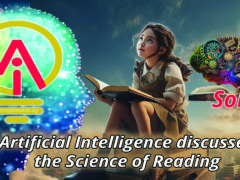

Indeed the established assumptions about the inherent stagnancy of text permanently dictate this offline, strategy-based model of reading instruction.

The difference between “learning to read on paper” and “learning to read on screens” is a very important conversation.

Dr. Andrew Johnson is a Reading Specialist and a Distinguished Faculty Scholar and Professor of Literacy at Minnesota State University. I, David Boulton, am a Learning Activist with Learning Stewards. Dr. Johnson and I have very different views about reading and the process of learning to read. We agreed to learn together and respectfully challenge […]
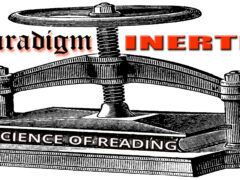
You See What Your Knowledge Tells You To See Paradigms are the mental infrastructures that connect and unify the mental models through which we experience the world. Because paradigms, like religious beliefs, can become so deeply rooted in our identities, they can be very hard to change. Sometimes they are hard to change for scientific […]
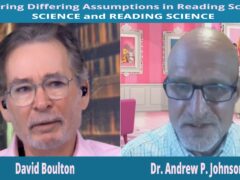
Dr. Andrew Johnson is a Reading Specialist and a Distinguished Faculty Scholar and Professor of Literacy at Minnesota State University. I, David Boulton, am a Learning Activist with Learning Stewards. Dr. Johnson and I have very different views about reading and the process of learning to read. We agreed to learn together and respectfully challenge […]
NAEP (K-12) scores aren’t perfectly accurate measures of grade-level reading proficiency. NAAL (17-year-old and up) scores aren’t perfectly accurate measures of adult literacy. The fact that they are separate assessment systems used to report on very different populations and yet come pretty close to predicting each other suggests they are both in the ballpark and […]
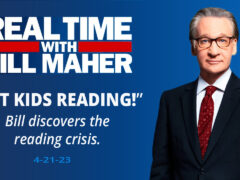
Bill Maher is known for pushing boundaries, criticizing and provoking both political wings, and for hosting conversations on a wide variety of important topics. During his April 21 2023 “Real Time” HBO show, Mr. Maher seemed startled as he read the headlines from a recent newspaper piece: “One in three children in America can […]
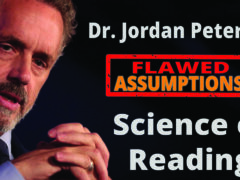
This clip begins with Dr. Peterson suggesting that motivating kids to learn to read is key to improving our educational and societal improvement efforts. He then proceeds to provide an overview of the conventional (Science of Reading) model of teaching reading. The clip ends with the prescient statement: “if the faculties of education were doing […]
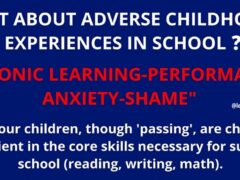
Since the initial emergence of ACE I’ve been interested in getting an additional type of ACE added to the framework: the adverse childhood experience of feeling CHRONICALLY NOT GOOD ENOUGH AT LEARNING. Where is the ACE score for “Chronic Learning-Performance Anxiety-Shame”? For day after day, week after week, month after month, year after year feeling […]
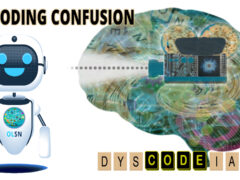
A short but deep journey into the root cause of reading difficulties and a new way of thinking about how to support children and adults who are learning to read and/or reading to learn.
